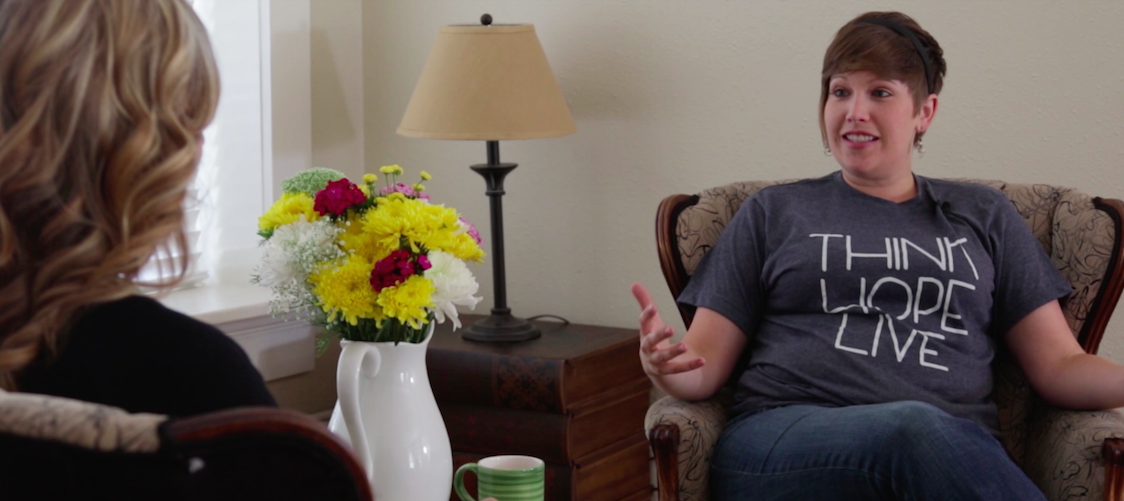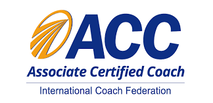|
You find yourself at a crossroads – you have a decision to make and you aren't sure which way to go. You talk to your friends, and they offer their counsel. You talk to you parents, and they tell you what they think. You talk to your mentors, and they give you some advice. If your experience is like most people's, bringing others into your decision-making quandary just means inviting a lot of potentially contradictory advice.
Enter coaching. The amazing thing about a coaching conversation is that you get to spend an entire conversation talking with someone who intentionally withholds their opinions and ideas in order to open up the space for you to pause and really hear yourself. A good coach asks powerfully big, non-leading, non-judgmental questions that help you explore, determine, and chart a course for reaching your goals. If you could use someone who is thoroughly in your corner and can help you recognize your passions, name your dreams, and find a way forward, coaching might be just the thing you're looking for.  What if there were five words you could string together in almost any conversation – with loved ones and business associates alike – to increase relationality and productivity? Good news: those words exist, and coaches use them all the time! What are they? “Tell me more about that.” Benefits With these five simple words, you invite the speaker to take the conversation to a deeper level and fill out the story with additional details. It’s hard to put a price tag on the additional information you’ll gain. But there’s another key benefit. If you do it right (not to pry but only out of genuine interest), while gaining info you’ll simultaneously make the other person feel important, cared about, and listened to. Examples Conversations often stall out because no one knows what else to say. But it doesn’t have to be that way! Here are some ideas for how to apply this incredible, and incredibly simple, question. 1. Your spouse comes home from work and you ask him how his/her day was. The answer is a mere one word, “Fine.” But you want to know more! Try: “Tell me more about what you worked on today. I’m so interested to know!” 2. Your boss mentions in a meeting that he’s got some ideas for a new project, which, even though the team is already overloaded, will need to begin soon. Rather than responding first with panic, start with inquiry: “I’d be interested to hear more details on that.” 3. You’re mingling at a cocktail party and are hesitant to enter into more small talk that will inevitably hit a dead end (“What do you do for work?” “I’m in the IT business.” “Oh. Cool.” [Silence]). Imagine what a better conversation you could have if you came back with the open-ended question: “Oh, cool. Tell me more about what you do in the IT business.” Becoming Interesting Yourself Whether you ask it in short form (“Tell me more”) or use a longer variation (“I’d like to hear more about that. What else can you tell me about ____?”), this invitation to keep talking can be a game changer in any number of conversational settings. And if you’ve read Dale Carnegie’s classic book, How to Win Friends and Influence People, you’re already aware of this paradox: people feel like you’re interesting when you let them do most of the talking. That being the case, if you make the effort to begin using these five words in conversation, you’re likely to skyrocket to becoming one of the most interesting conversationalists your friends and colleagues ever encounter. “Tell me more about that.” So simple, but so significant. Try it today and see what happens. Be sure to submit your favorite variation in the Comments section so we can all give it a shot!  I spend coaching session after coaching session helping others find their ‘why’ and drill down on what drives them. But I rarely take the opportunity to express to my clientele why I do what I do! Here are the Four Beliefs and Four Loves that compel me to be a Career & Life Coach. I’m a coach because…
I’m a coach because…
That's me! What are the beliefs and loves that drive what you do?  The Secret I want to let you in on a little secret coaches know about how to prime the pump for breakthrough: always start with the ideal. What It Is The “ideal” is what you envision as best-case scenario. It’s how things would be if everything went right. We often hold back from naming the ideal because it seems too good to be true, or we feel we’re not worthy of it for any number of reasons. But we have to start by describing the dream destination if we’re ever going to end up anywhere near reaching it. How To Name It There are all sorts of questions you can use to help you describe the ideal. Here are a few to get you started:
The Result If you're wondering whether it’s also important to talk about the reality of your situation and not just the ideal outcome, the answer is a clear "yes!". The critical factor is which comes first. When you start by talking about how stuck you are and what problems you’re facing, it totally zaps your energy. On the other hand, when you start by talking about the ideal it sets your mind free to dream bigger dreams. Ultimately, taking time to describe the ideal in rich detail allows you to hope. When you start with that 30,000-foot view of the ideal, it gets you out of the weeds – out of the mud and muck – and allows you to see the whole landscape. It’s only then that you’ll have the energy and motivation you need to come back down to the reality of the situation and do what it takes to move forward. You must first paint the picture of your desired outcomes if you want to build the momentum it will take to make them a reality. So next time you’re standing at a crossroads in life…take a page from the coach’s playbook and always start with the ideal!  All questions are not created equal. Some are more powerful than others – opening up new learning, insight, and discovery. Yet we often just ask whatever pops to mind, having rarely if ever considered how to craft a good question. (One of the things for which I’m most thankful to The Center for Coaching Excellence is their instruction on how to ask better questions. Good question-asking did not come naturally for me…I had a lot to learn!) There is a craft – an intentionality – to asking great questions. Remembering the following two statements will propel you forward in that craft. 1. The best questions are open-ended questions. Open-ended questions leave the door open so a conversation can carry on in any number of directions, depending on where the respondent chooses to take it. They are easily recognized in contrast to closed questions, which elicit a limited “yes” or “no” response. Here are some examples:
2. The best questions are asked for the sake of the other. Have you ever reflected upon why you ask the questions you do? Questions can be self-serving or others-serving, rooted in curiosity or in wonder.
Learning to ask wonder-based, others-serving questions is a way to love others through communication. These self-giving questions are part of what I call “conversational hospitality,” because they make room for the other. How to change your closed questions to open-ended questions: There is a place for asking closed questions – sometimes we need them in order to gather critical information (“Did you remember to buy the milk at the store”). But when we’re trying to have meaningful conversations, it’s open-ended questions that will do the most good. Here’s a quick tip for how to open up your questions and change your conversations for the better.
If you do these two things, this you’ll be well on your way to asking great questions. Give it a try and let me know what happens!  You need to know your “why.” Okay, so this isn’t news – you’ve heard this advice from numerous business books and motivational speakers. But what’s behind it, and how do you do it? Knowing Why Your “Why” Matters We make decisions every day: should I buy this or that, should I quit my job or stick it out?, should I binge watch another season of Lost (maybe that’s just me!)? We navigate countless crossroads, small and large, every day. The question is, what’s the compass we’re using to choose our direction? If you want to draw a straight line from where you are to where you want to be, you’ve got to know your “Why.” Your “why” is that which drives you. Its core is purpose – a vision that propels you forward. Your “why” is composed of your desired outcomes, passions, and core values. And it’s often buried down deep; the roots beneath the tree. Knowing How to Find Your “Why” So far, I haven’t said anything revolutionary. But hang tight – we’re getting there! The important thing is not in knowing you need to know your “Why”…it’s knowing how on earth to find it. The tool that will help you dig down deep to the roots of your purpose is a simple one word question: “Because?”. Applied in conversation, it goes like this: “ABC.” “Okay, because?” “DEF.” “Great! Because?” “GHI.” “Keep going. Because?” “JKLMNOP.” “Awesome!” You could do this for a really long time and find lots of layers of “Why’s,” but it usually only takes a few rounds of asking the because question to find what you’re looking for. Making Your “Why” Statement Let’s keep this simple. Remember when I said your “Why” consists of your desired outcomes, passions, and core values? Here’s an easy way to turn those three elements into a “why” discovery sentence: “I desire to see _____ happen (desired outcome), because I’m passionate about _____ (passion), because _____ is really important to me (core value), because _____ (your “why”).” As an example, here’s a “Why” statement from my own life: “I desire to be an excellent interpersonal communicator (desired outcome), because I’m passionate about connecting with others relationally (passion), because I deeply value helping people feel heard (core value), because that’s a key way that I can love my neighbor.” So in this example, my “why” for investing in growth in my communication abilities is because it’s an opportunity to care for my neighbor. Now it’s your turn! What’s your “Why” for your work, your studies, etc.? Keep asking yourself the simple one-word question: “Because?” and fill in the blank until you’ve articulated what drives you. Then hit the road! |
Paige Gutacker
Career & Life Coach. Speaker. Writer. Friend. Archives
January 2018
Categories |

Paige Gutacker
Career & Life Coach |
ContacT US
|
Copyright © 2017 Crossroads Coaching, LLC



 RSS Feed
RSS Feed